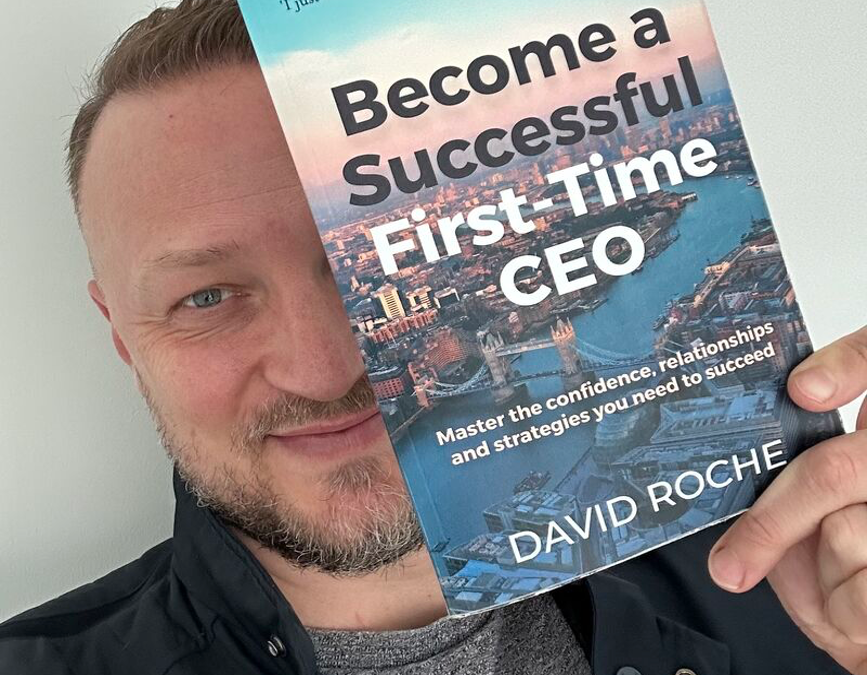I met David Roche at the 2024 APE (Academic Publishing in Europe) Conference in Berlin, where he presented on lean change principles as part of a panel. I appreciated his metaphor of an orchestra conductor to illustrate the role of the CEO. While the conductor doesn’t deliver a musical note they lead by dictating the pace, building emotion and passion, having a plan that everyone is aware of, inspiring and bringing out the best in others, listening with empathy, and making the whole greater than the sum of its parts. We chatted during the conference break when David gifted me a copy of his book, “Become a Successful First-Time CEO,” which I dug into this past March.
The book is filled with actions, strategies, and personal stories that aspiring and first-time CEOs will find valuable and relatable. I appreciated David sharing about his time working for HMV – a music retailer store that I used to frequent for my CD purchases. I mention this because it was a proud moment when the music I released back in 2006 was placed in HMV stores throughout Canada – but that’s a story for another time. A nice trip down memory lane 😊
Here are some key learnings I took away from the book:
1. Many industries promote technicians to executive roles without providing them with proper management training. Thus, a coach is a necessary ally for any new CEO.
2. Being a generalist is a specialist skill.
3. Effective people skills is crucial for new CEOs. Relationship and communication skills are more critical than expertise or experience for CEOs.
4. CEOs need to manage three relationships: with themselves, internally, and externally.
5. The world needs more leaders than managers.
6. Decisiveness is important for CEOs. “Sometimes a bad decision on Monday makes more money than a good decision on Friday.”
7. Embrace change and adaptability and focus on the long haul.
8. Mistakes are part of the learning process.
9. Imposter syndrome is common among first-time CEOs. Majority of others suffer from this as well.
10. Less experienced CEOs often outperform seasoned ones.
11. Effective communication is critical for managing upwards.
12. Company culture and communication are keys to success. Richard Branson put it simply, “There’s no magic formula for great company culture. The key is just to treat your staff how you would like to be treated.”
13. Emotional intelligence is more effective than coercion.
14. Leadership is about inspiring others, not taking credit.
15. Transitioning to CEO is challenging and lonely.
16. Asking the right questions is more critical than having all the answers. The answer is in the question.
17. Quality and integrity matter, even when no one is watching.
18. Effective CEOs create self-sufficient teams and organizations. If you can go on holiday and the business runs just fine while you are away, it doesn’t mean you are not needed – it means the opposite: you are fantastic at your job.
hashtag#ceo hashtag#leadership hashtag#success hashtag#book hashtag#reading hashtag#davidroche

